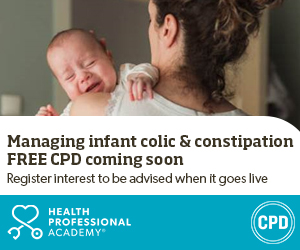If you have asthma, it’s important to know when you should see a doctor about an asthma flare-ups. A flare-up is a sudden increase in your symptoms, which can include coughing, wheezing, chest tightness, and shortness of breath. Flare-ups can be mild or severe, and they can occur at any time. If you’re not sure whether you’re having a flare-up, here are six obvious signs that it might be time to see a doctor.
1. You’re Using Your Inhaler More Than Usual
If you have asthma, you likely have a rescue inhaler that you use when you’re having symptoms. This inhaler contains a medication that can quickly relieve your symptoms. If you find that you’re using your rescue inhaler more often than usual, it could be a sign that your asthma is getting worse and you need to see a doctor. By seeking a doctor near me online, you can find a reputable physician who will accurately diagnose and treat your asthma. Always look for a second opinion, as one doctor’s opinion might differ from others. For example, some doctors might recommend that you use a daily inhaler, while others might only recommend using it when you’re having symptoms.
2. Your Symptoms Are Worsening
If your asthma symptoms are getting worse, it’s time to see a doctor. Worsening symptoms can include increased coughing, wheezing, chest tightness, and shortness of breath. These symptoms can happen gradually or suddenly. If you notice that your symptoms are getting worse, make an appointment to see your doctor as soon as possible. Or, if your symptoms are severe, go to the emergency room. Symptoms such as difficulty breathing, a rapid heartbeat, and sweating are all signs that you might be having a life-threatening asthma attack and you need immediate medical attention.
3. You Have More Asthma Attacks
An asthma attack is a sudden worsening of your symptoms that can last for minutes or hours. If you have more asthma attacks than usual, it’s a sign that your asthma is getting worse and you need to see a doctor. During an asthma attack, your airways narrow and make it hard to breathe. You might also experience rapid breathing, chest pain, and coughing. If you have an asthma attack, sit up straight and use your rescue inhaler as directed. Then, call your doctor or go to the emergency room right away.
4. You Wake Up at Night Coughing
If you’re waking up at night coughing, it’s a sign that your asthma is not well-controlled. Nighttime coughing can disrupt your sleep and make you feel exhausted during the day. If you’re regularly waking up at night coughing, make an appointment to see your doctor. They can help you find the right medications to control your symptoms and allow you to get a good night’s sleep. Make sure to keep track of when you’re coughing and how often it’s happening so you can give your doctor a clear picture of your symptoms.
5. You Feel Tired or Short of Breath During Exercise
If you have asthma, you might get tired or short of breath during exercise. This is because exercise can trigger asthma symptoms. If this happens, it’s a sign that your asthma is not well-controlled and you need to see a doctor. by seeing your doctor for an evaluation, they can determine if your asthma is well-controlled and make any necessary changes to your medication. Tiredness and shortness of breath during exercise can also be a sign of other health problems, so it’s important to see your doctor to rule out any other potential causes.
6. You Have Chest Pain or Pressure
If you have chest pain or pressure, it could be a sign of a more serious problem, such as a heart attack. If you have these symptoms, call 911 immediately and go to the emergency room. While chest pain or pressure can be caused by other conditions, it’s always best to err on the side of caution and get checked out by a doctor. Additionally, if you have asthma and you experience chest pain or pressure, it may be a sign that your asthma is not well-controlled. Consider making an appointment to see your doctor so they can evaluate your symptoms and make any necessary changes to your medication.

If you’re experiencing any of the above symptoms, it’s important to see a doctor so they can evaluate your asthma and make any necessary changes to your medication. uncontrolled asthma can lead to serious health problems, so it’s important to get the condition under control as soon as possible. If you have an asthma attack, sit up straight and use your rescue inhaler as directed. Then, call your doctor or go to the emergency room right away.









